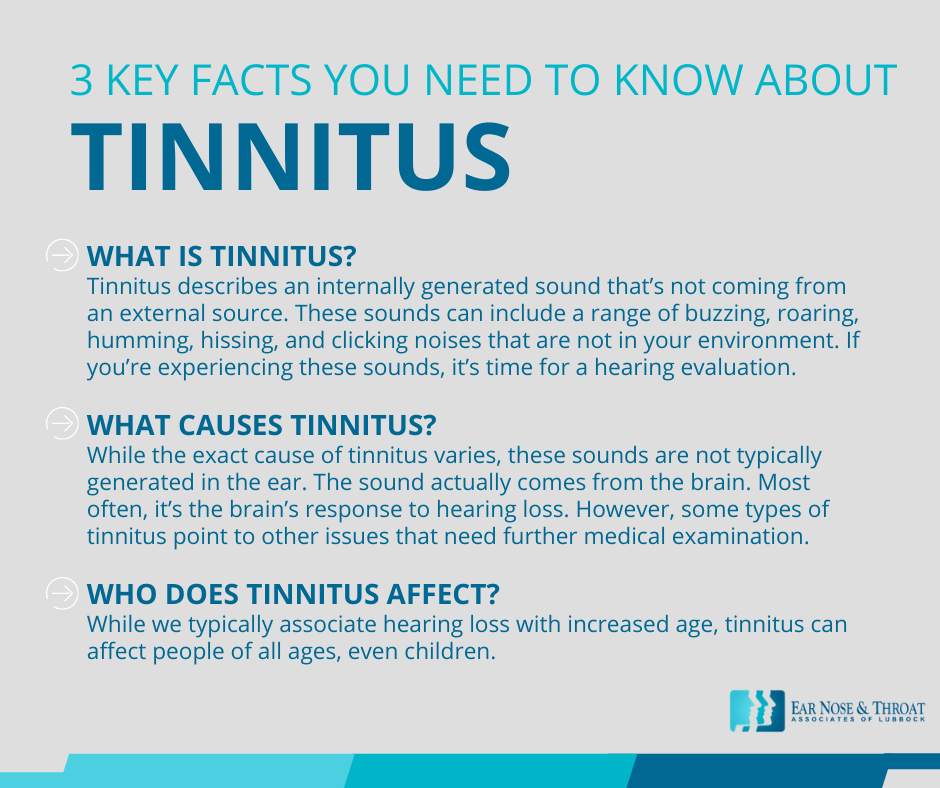Humming in Your Ears? Here Are The Four Main Types of Tinnitus

Imagine a bee buzzes in your ear for an entire day. This humming in the ear keeps you turning to see if anything is there, fidgeting with your ear, and struggling to pay attention to the world around you. Does anyone else hear this? Are you losing your mind?
Sounds irritating, right? But does it also sound familiar?
Patients who struggle with tinnitus experience this type of low-frequency tinnitus daily. They hear roaring, ringing, buzzing, and humming — and it’s all in their head.
Except it’s real.
While no one else can hear these four types of tinnitus, these sounds are very real to the person who’s experiencing them. For some, these sounds are simply a side effect of hearing loss. For others, there’s a medical issue that needs to be addressed.
If you’re experiencing humming in the ear, particularly if it’s a pulsating, whooshing, or rhythmic sound, it’s time to visit your Audiologist to see what’s going on.
What is Tinnitus?
Tinnitus describes an internally generated sound that’s not coming from an external source. These sounds can include a range of buzzing, roaring, humming, hissing, and clicking noises that are not in your environment. If you’re experiencing these sounds, it’s time for a hearing evaluation.
If you hear rhythmic pulsing or whooshing sounds, that indicates a hearing exam is even more important. In these cases, we’ll test your hearing and refer you for a medical exam to best identify the issue.
What Causes Tinnitus?
While the exact cause of tinnitus varies, these sounds are not typically generated in the ear. The sound actually comes from the brain. Most often, it’s the brain’s response to hearing loss. However, some types of tinnitus point to other issues that need further medical examination.
Who Does Tinnitus Affect?
While we typically associate hearing loss with increased age, tinnitus can affect people of all ages, even children.

What Are My Treatment Options?
If you notice humming (or other noises) in your ears that’s not environmental, you need to visit an Audiologist or ENT for evaluation. While tinnitus can indicate an insignificant issue, it can also be a red flag for other problems that need further medical investigation.
It’s best to go over treatment options with your ENT and audiologist. Tinnitus indicates a wide range of possible issues to address. Treatments are always personalized to the individual patient.
During your visit, we’ll talk to you about the different qualities of the sound and try to identify where the hearing loss is occurring. We start by conducting a full hearing test. If we see that hearing loss isn’t the source of the issue, we’ll investigate other potential causes.
What Can I Do Today?
Before you even visit your Audiologist, the best thing to do to immediately relieve this irritating sound is to try to break the hyper feedback loop. When you think about tinnitus, you heighten your awareness of it. You then perceive it to be louder and more bothersome than it would be otherwise.
To make it better, try focusing on something else in the environment to keep your active listening distracted. Then, you won’t be actively listening and paying attention to the internally generated tinnitus.
To help distract yourself, use masking noises in the environment such as noise generators, white noise, chimes, or music to keep your brain active (and not focused on the tinnitus). While distraction won’t make the tinnitus fade completely, it may help the “buzzing bee” fly a little further away.
If you’re experiencing humming in the ear or other forms of low-frequency tinnitus, schedule an appointment with your Audiologist or ENT today. We’ll identify the source. Then, we’ll move toward treatment options that provide you the relief you so desperately need.
Dr. Thackrey has been providing Audiology services to West Texas residents since 2006. She is licensed in the State of Texas and is a member of the American Speech-Language-Hearing Association (ASHA). She specializes in hearing evaluations of all ages, but is especially skilled in the selection, fitting, programming and servicing of hearing aids. Learn more about Dr. Thackrey
Categories:







